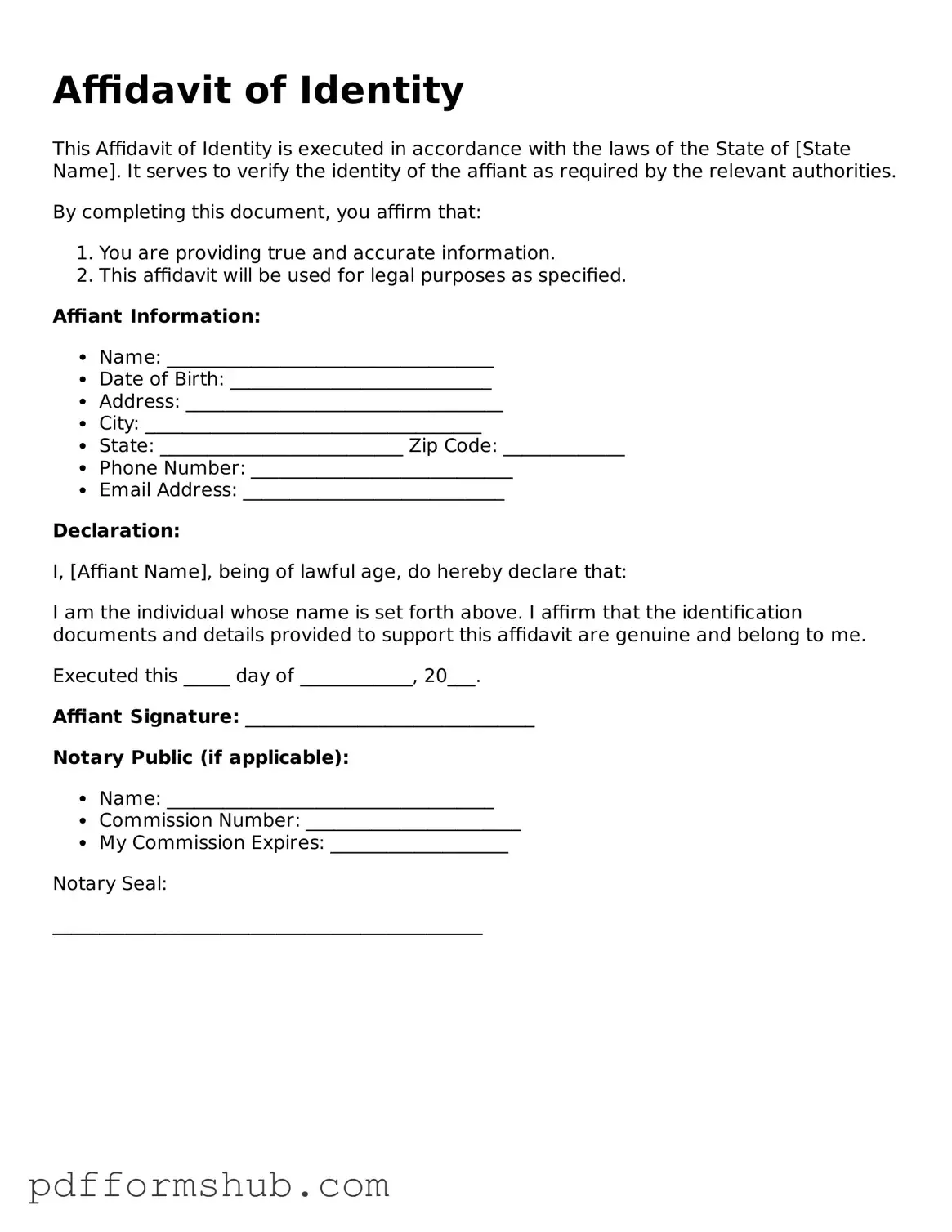Valid Affidavit of Identity Form
The Affidavit of Identity form is a legal document used to verify a person's identity, often required in various legal and administrative processes. This form helps to confirm that the individual presenting it is indeed who they claim to be, providing a safeguard against identity fraud. If you need to fill out this important document, click the button below.
Customize Form

Valid Affidavit of Identity Form
Customize Form

Customize Form
or
Free PDF Form
Short deadline? Complete this form now
Complete Affidavit of Identity online without printing hassles.